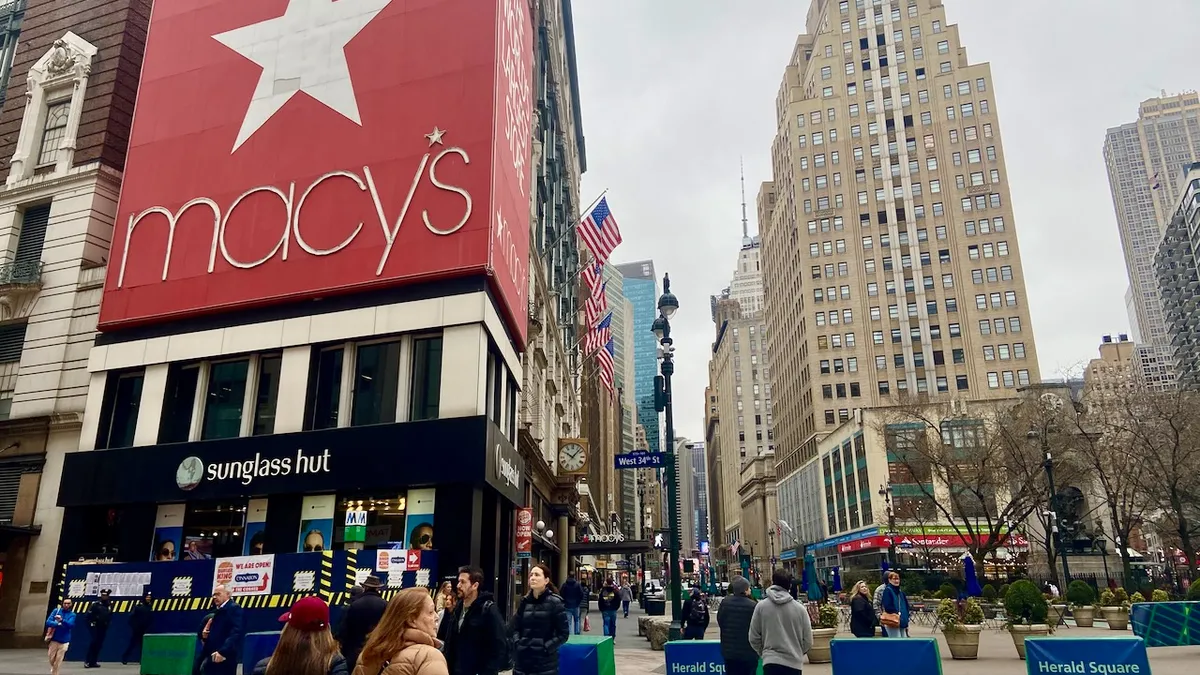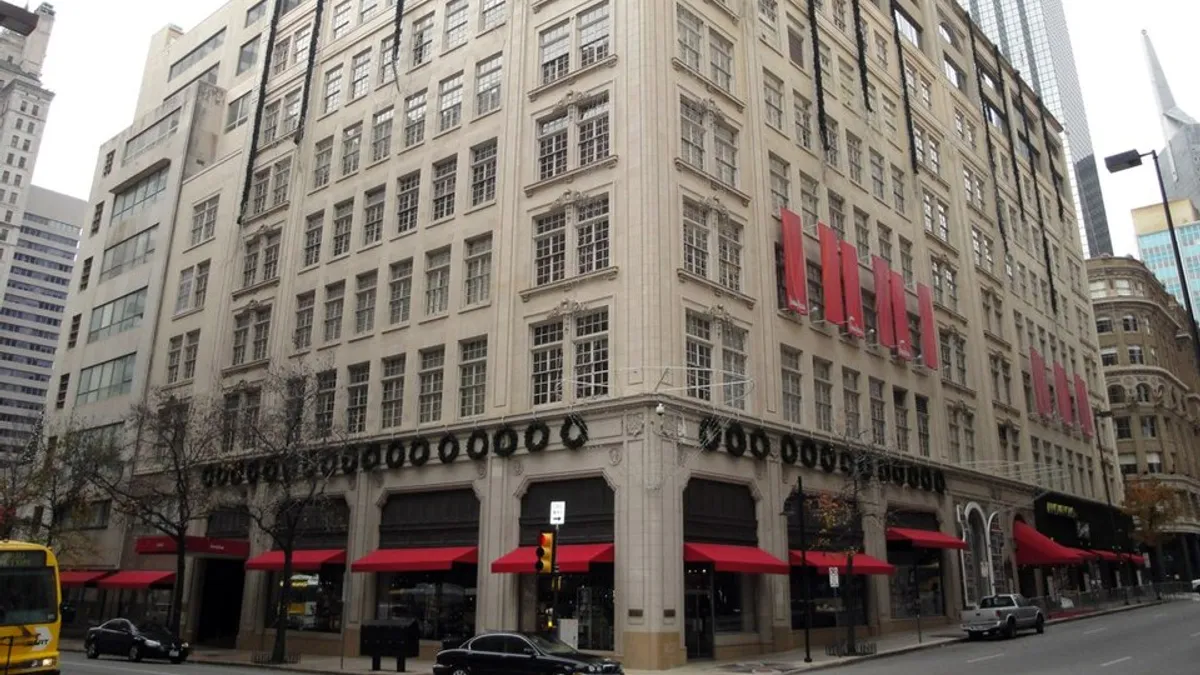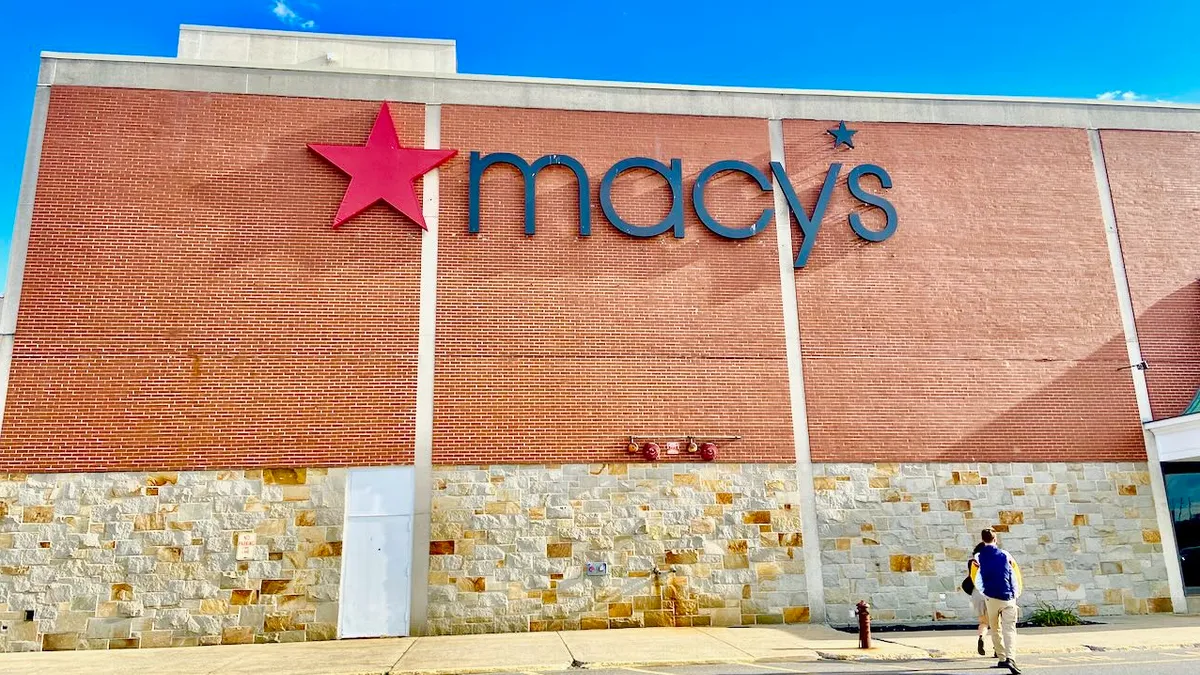Myron “Mike” Ullman, who made his mark in retail at Macy’s, LVMH and during two stints as chief executive of J.C. Penney, among other prominent posts, has died, the University of Cincinnati confirmed Friday.
In addition to his influence at various retailers in the C-suite and on boards, Ullman fostered education at his alma mater. In 2007, Ullman and his wife, Cathy Ullman, donated $10 million and established the Myron E. Ullman, Jr. School of Design — named for his father — at the University of Cincinnati’s College of Design, Architecture, Art, and Planning, where Cathy Ullman graduated in 1970.
The naming of the school recognizes the generosity of “endowed funds that have been pivotal in maintaining the school at the cutting edge in faculty excellence, curricular innovation, and technology support,” Timothy Jachna, dean of the college, said by email.
The Ullmans were also instrumental in establishing the Warren Bennis Leadership Institute at the school’s Carl H. Lindner College of Business, from which Mike Ullman graduated in 1969.
“While he will be sorely missed, the Ullman name and legacy will continue to inspire and support the ongoing success of our design programs and future generations of students,” Jachna said.
"The Ullman name and legacy will continue to inspire and support the ongoing success of our design programs and future generations of students."

Timothy Jachna
Dean of the College of Design, Architecture, Art, and Planning at the University of Cincinnati
Ullman worked closely with Bennis when Bennis was president of the university, according to Marianne Lewis, dean and professor of management at the Carl H. Lindner College of Business.
“Mike learned from Warren’s leadership expertise, modeling the powerful blend of boldness and humility, compassion and discipline,” Lewis said by email, noting that his peers often called Ullman "the gentle giant of global business leaders.”
While his double tenure at J.C. Penney is best known, Ullman also previously led Macy’s as CEO, served as an executive at LVMH, was CEO of travel retailer DFS Group, and held various positions at Federated Department Stores. His familiarity with the outsize popularity of LVMH-owned Sephora led to Penney’s erstwhile partnership with the beauty retailer, according to Strategic Resource Group founder and Managing Director Burt Flickinger, who worked with Ullman in various capacities over the years.
He sat on various boards, including as board chair at Starbucks. He advised the board of the Retail Industry Leaders Association and once chaired the National Retail Federation. Outside of retail, he was a White House Fellow in the Reagan administration and vice president of business affairs at the University of Cincinnati, among other posts.
Despite spending seven influential years as J.C. Penney CEO, then returning out of retirement in 2013 to take the post again following the brief, ill-fated tenure of Ron Johnson, Ullman’s contributions remain underappreciated, according to Flickinger.
Ullman was pushed out in 2011 in favor of Johnson at a time when financier Bill Ackman’s Pershing Square Capital Management owned a majority stake in the struggling department store.
“Mike really unfairly suffered through private equity’s proverbial retail reign of terror,” Flickinger said in an interview. “Pershing Square, Bill Ackman, Vernado, Steve Roth — all the cast of rogue private equity characters are brilliant in terms of the financial markets, but don't understand the detail of retail the way Mike uniquely did, better than just about anybody in America.”
At Penney, Ullman walked the halls of the corporate headquarters in Plano, Texas; visited stores and interacted with store staff at all levels, Flickinger said. He brought in salons — temporarily axed under Johnson but now touted by the retailer as a key back-to-school enticement — and reached out to Latino and Black consumers who increasingly shopped there, according to Flickinger. He also brought in women and people of color into leadership positions because “it was the right thing to do, but he also did it because it was good for business.”
“With Mike, you didn't have to have a high school degree or a Harvard or Yale MBA degree like Ackman and Roth. You just had to work hard, take care of the customer, continually improve, be a good leader and a team member at the same time,” Flickinger said.
“He was a gentleman. He was a leader with impeccable manners. He was tremendously intelligent, but he also had great 360-degree intuition. He saved Penney, saved so many jobs. He was beloved by everybody, from the stores, the part-timers, the full-timers, the merchants. But one of Mike's really lasting legacies is that anybody who was talented could succeed at Penney under Mike."

Burt Flickinger
Founder and Managing Director, Strategic Resource Group
Ullman’s eye for talent and his dedication to mentorship have rippled throughout retail as many of his hires have gone on to successful careers at other companies, including Marvin Ellison, who succeeded Ullman at Penney and went on to lead Lowe’s as CEO, he also said.
“Mike was a hero, but he was an unsung hero,” he said. “He was a gentleman. He was a leader with impeccable manners. He was tremendously intelligent, but he also had great 360-degree intuition. He saved Penney, saved so many jobs. He was beloved by everybody, from the stores, the part-timers, the full-timers, the merchants. But one of Mike's really lasting legacies is that anybody who was talented could succeed at Penney under Mike, regardless of educational background, regardless of economic or geo-demographic background. That's Mike's lasting legacy.”






















